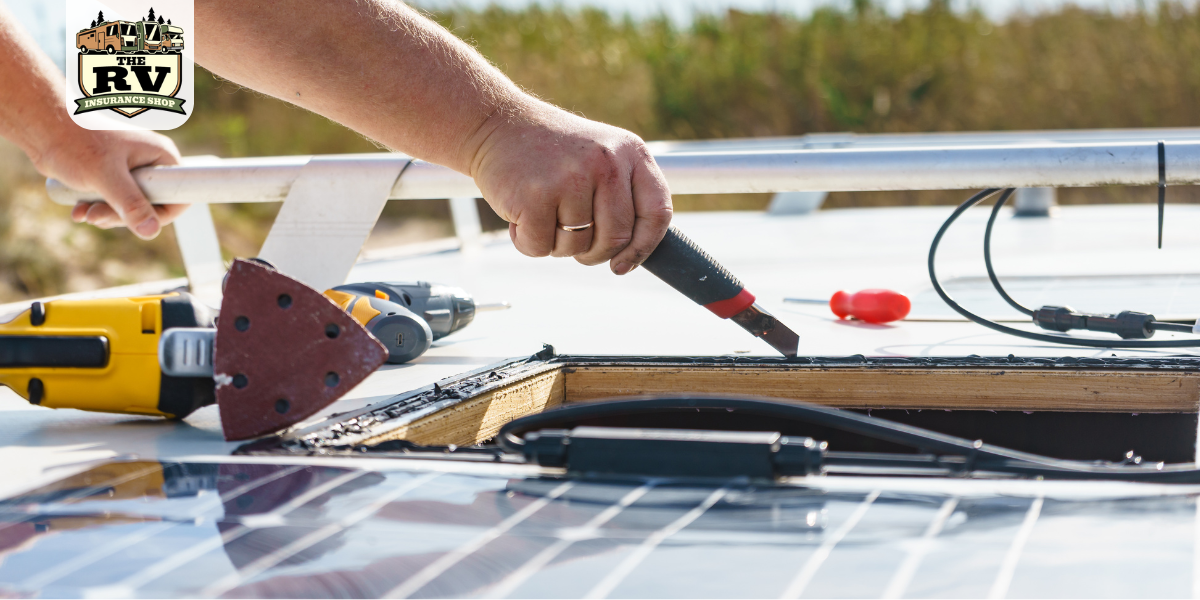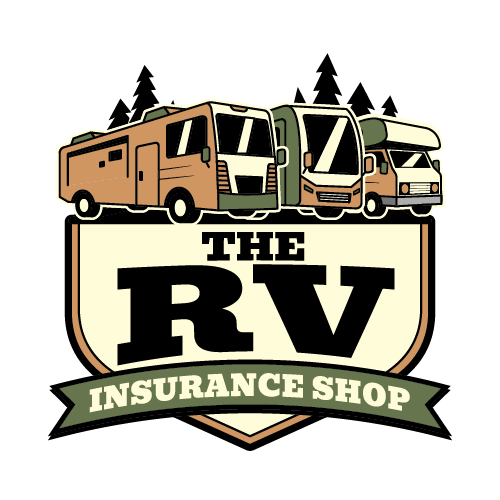Does RV Insurance Cover Water Damage?

When you own an RV, you know that water can be both a blessing and a curse. It’s what fills your tanks, powers your shower, and helps you stay off-grid. But when it gets where it shouldn’t—like under your flooring or inside your walls—it becomes a major problem.
That’s why so many RV owners eventually find themselves asking:
Does RV insurance cover water damage?
The answer? Sometimes yes, sometimes no—it all depends on the source of the water, the timing of the damage, and the coverage in your policy.
Let’s break it down so you know where your protection begins—and where it might fall short.
The Truth About Water Damage in RVs
Water damage is one of the most common—and costly—issues RV owners face. A small roof leak or cracked seal can lead to major structural damage, mold, and expensive repairs if it goes unnoticed. And unlike a home, an RV is constantly exposed to movement, vibration, and weather conditions that can speed up wear and tear.
Unfortunately, water damage also happens in a variety of ways—some of which are covered by insurance, and others that are not.
When RV Insurance Does Cover Water Damage
RV insurance policies typically include comprehensive coverage, which protects your RV against non-collision incidents like theft, fire, vandalism—and yes, some types of water damage.
Here are a few common scenarios where water damage might be covered:
1. Sudden and Accidental Events
If water damage happens suddenly and unexpectedly—such as from a storm, a tree branch puncturing the roof, or a burst water pipe—your comprehensive coverage may kick in to help pay for repairs.
Example:
You’re camping during a heavy rainstorm and a falling limb tears your roof open, allowing water to pour in. If you have comprehensive coverage, that damage may be covered.
2. Accidental Damage from Road Debris
If road debris kicks up and causes a break in a seal or shatters a window that leads to water getting inside, that could also qualify under comprehensive or collision, depending on the situation.
3. Vandalism or Theft-Related Damage
If someone breaks into your RV and damages a window, or steals parts and water gets in as a result, the water damage that follows may be part of your claim.
When RV Insurance Does Not Cover Water Damage
Unfortunately, not all water-related damage is considered sudden or accidental. In fact, the most common type of water damage—slow leaks and long-term wear—is usually not covered.
Here are situations where water damage is typically not included:
1. Gradual Leaks or Seepage
If your roof seam or window seal has been leaking for months and you didn’t notice, most insurance companies consider that a maintenance issue. Damage that results from wear and tear, neglect, or lack of upkeep is not usually covered.
Example:
If your roof has a crack that you didn’t repair, and water slowly seeps in causing rot and mold—insurance likely won’t help.
2. Pre-Existing Damage
If your RV had existing water damage before you purchased or insured it, that won’t be covered under a new policy.
3. Frozen Pipes (Without Proper Winterization)
If your water lines freeze and burst because the RV wasn’t winterized, some policies will deny the claim. However, if you did properly winterize and damage still occurs, some insurers may consider that a covered loss.
How to Increase Your Chances of Coverage
The best way to make sure your RV insurance covers water damage is to take a proactive approach:
Understand Your Policy. Not all RV insurance policies are created equal. Make sure you know what’s included—and ask your agent specific questions about water damage.
Add Endorsements. Some insurers offer optional water damage endorsements or full coverage packages that expand protection for water intrusion. Ask if this is available.
Perform Regular Maintenance. Inspect your roof, seals, and slide-outs regularly. Keep your maintenance records—they can help support a claim if you need to file one.
Document Everything. If damage occurs, take photos right away and contact your insurance provider as soon as possible.
So, Does RV Insurance Cover Water Damage?
The key takeaway? RV insurance can cover water damage—but only under the right circumstances. Sudden, accidental incidents like storm damage or burst pipes are typically covered, while gradual leaks and maintenance-related issues usually are not.
If you’re not sure what your current policy includes, it’s a good time to review it. Water damage is one of the biggest threats to your RV’s value, and a well-built policy can save you thousands in repair costs—and keep you on the road, not in the shop.
Protect Your RV with the Right Coverage
At RVInsuranceShop.com, we work with top-rated insurance providers that understand the unique risks RVers face—including water damage. We’ll help you compare policies, review available add-ons, and make sure you’re covered for the road ahead.
Get a quote today and travel with peace of mind—rain or shine.

